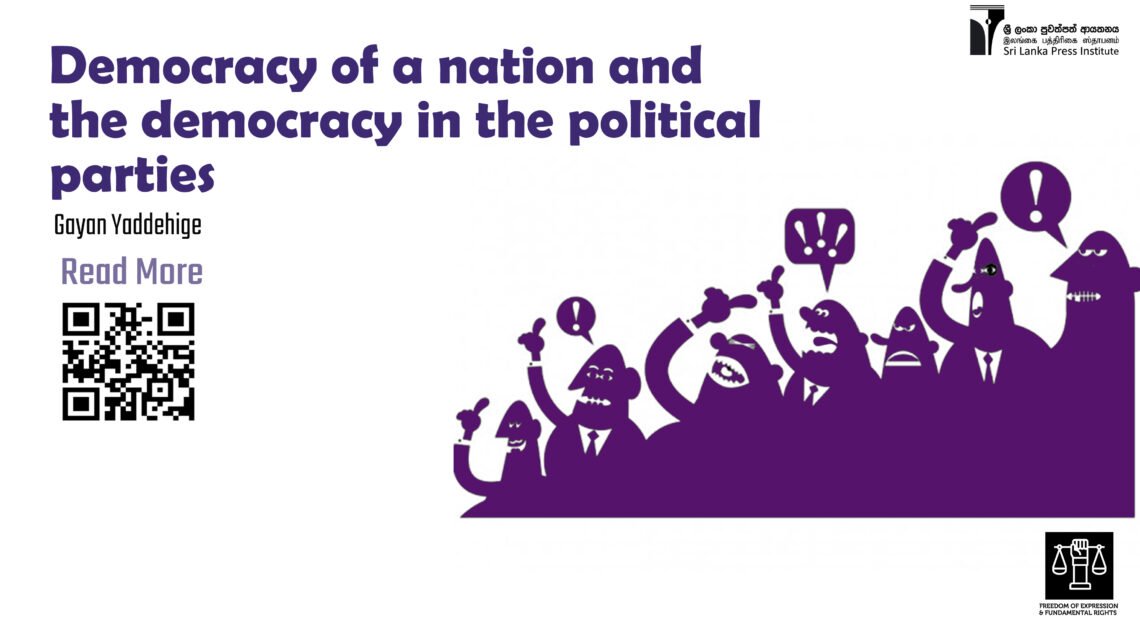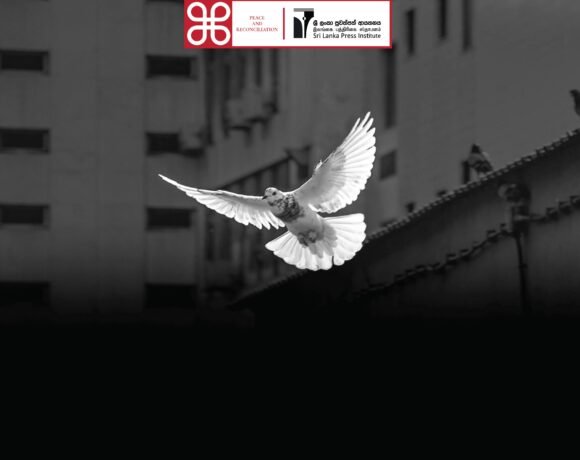Gayan Yaddehige
Sri Lanka is known as Sri Lanka Democratic Socialist Republic. People have diverse views on democracy based on their knowledge and understanding. One main idea is that democracy is the right to live freely. Deconstruction of the term democracy will help to understand it politically. In Greek, Dēmos means ‘people’, and Kratos is ‘rule’. In this context, democracy means people’s rule.
Democracy has two dimensions. One is direct democracy and the other is a representative democracy. Under direct democracy, the citizens directly involved in rule. Direct democracy was practised in Athens in Greece. With the population growth, it was difficult for people to engage with the rule. Therefore, representative democracy was introduced for people to appoint representatives to represent them. Sri Lanka practices representative democracy while direct democracy can be seen in referendums. A good characteristic of the constitution of Sri Lanka is that the members of the parliament cannot amend some clauses of the constitution and such amendments need to be approved directly by people.
It is clear that the opportunity for the election of people’s representatives is crucial for democracy. Free and fair elections are essential for democracy. Also, the elections must be held timely. When elections are not held timely, freely and fairly, the people lose the opportunity for electing their representatives. We must understand that such situations damage the foundation of democracy.
We have observed many instances that the free and fair elections were not held. One example is the corrupt and violent election for the Northwestern Provincial Council held under the presidency of Chandrika Bandaranaike Kumaratunga. There are too many examples for postponing elections. Elections for the Provincial Councils of Sri Lanka have been delaying for years now.
Advocating for timely, free and fair elections is a duty of citizens. Under representative democracy, the governments are formed according to the party system. The multi-party system, instead of the mono-party system enhances democracy. People have diverse ways of thinking; they must have the opportunity to select a political party to represent their views. Otherwise, people have to choose a party, although its policies do not match their requirement. It undermines the genuine public opinion and not suitable for democracy.
Sri Lanka has parties based on races and religion. Such parties are not healthy for democracy. Citizens have the right to elect their representatives through free and fair elections, as per the Election Act. It is called the sovereignty of people. Under the present electoral system, proportional representation and preferential votes are used to elect the people’s representatives. However, the voters’ behaviour in Sri Lanka indicates that people give priority to the party over candidates. This phenomenon is clearly visible in the last local government election also. Such actions undermine representative democracy, and people are the only force who can correct it. The literacy in Sri Lanka is relatively high, but the political literacy does not tally with it. Therefore, people always tend to be sentimental and less focused on the policies. As a result, we observed many politicians elected by people harmed democracy during the past few decades.
Balance of power among the executive, legislature and judiciary is vital for democracy. The foundation of democracy upsets when one of them tries to overpower the other. The 20th amendment to the constitution created a situation the President is superior to law. The 20th amendment destabilised the democratic framework guaranteed by the 19th amendment to the constitution. Under representative democracy, the parliament divides as the ruling party and the opposition. The party or the coalition which has the majority power in the parliament can form the government. A strong opposition is essential for a democracy. If the rulers ignore public opinion and act in an anti-democratic manner, the opposition has the primary duty of preventing them until the next election.
Under the party system, people can elect their representatives from the candidates nominated by the political parties. In this backdrop, the internal democracy of political parties is vital. Unfortunately, the major political parties of Sri Lanka do not appear as democracies. A few individuals always dominate them. Democracy must be safeguarded before it is strengthened. If we fail to do so, people will not have the opportunity to elect their representatives efficiently.









